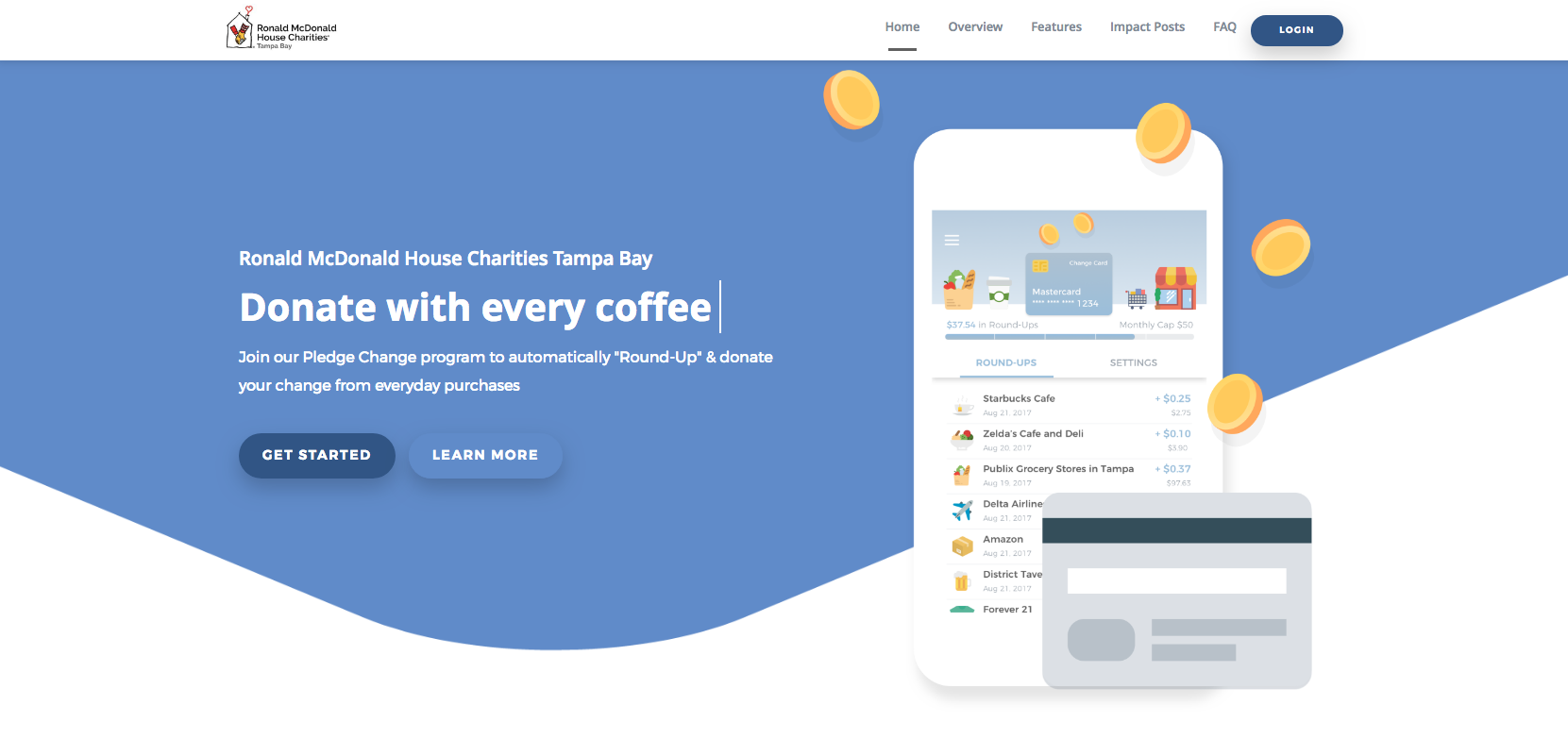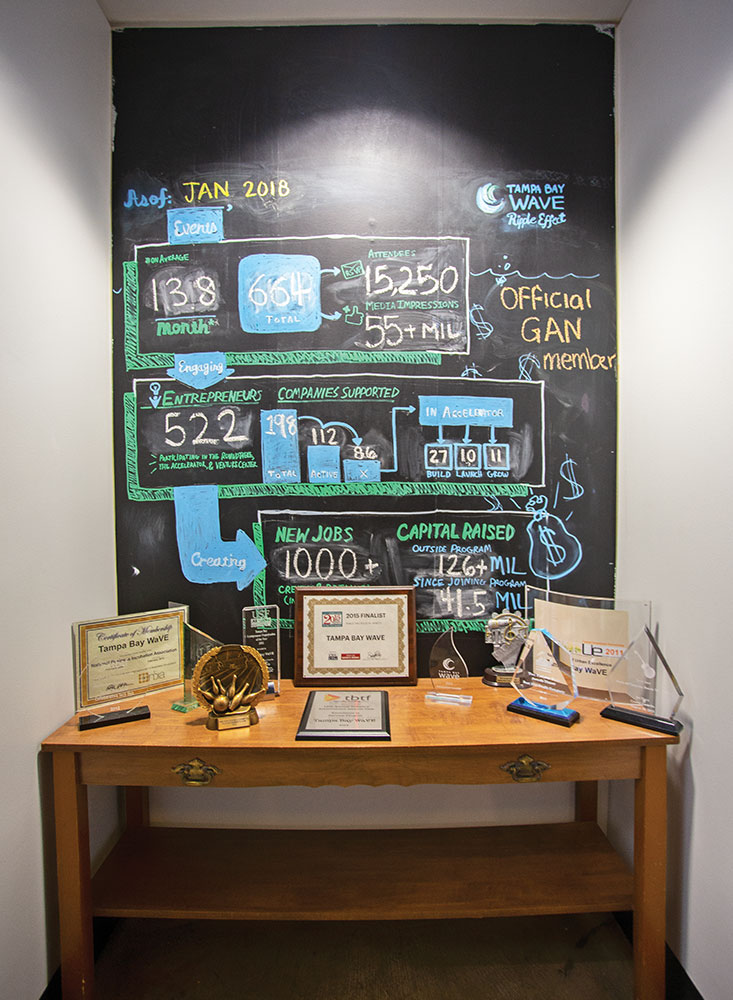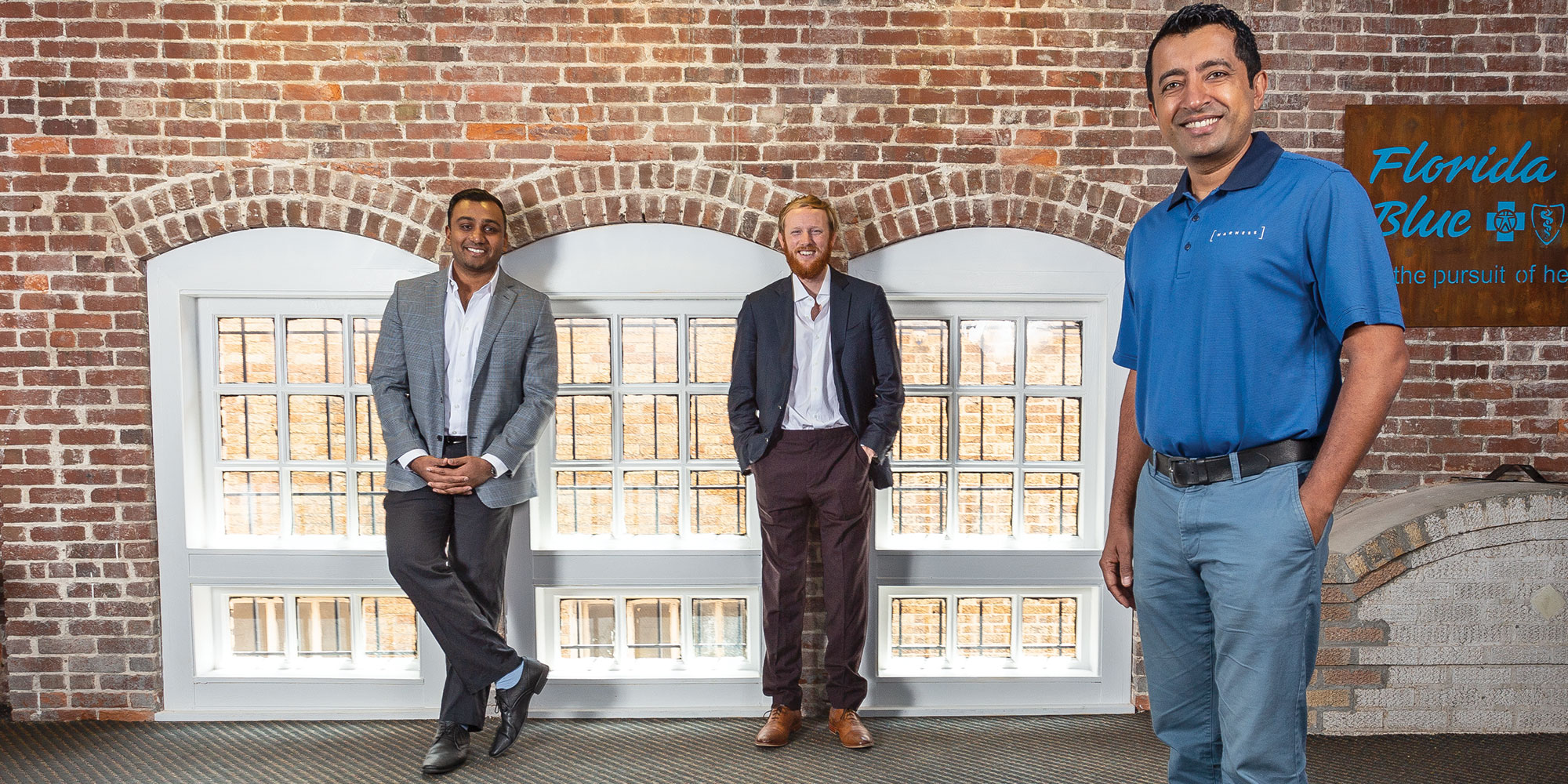Sometimes good ideas seem to just fall into our laps — metaphorically. For Andrew Scarborough and Miraj Patel, the loose change that sparked the idea behind their Tampa-based startup quite literally fell into Patel’s lap.
“We were driving down I-275, and Andrew hit a pothole in the road,” Patel says. “A few coins fell out of his cupholder into my lap, and that was the eureka moment.”
In July 2017, the University of Florida alumni launched Harness, a software that allows donors to link their credit or debit card to a participating nonprofit organization and round up each purchase made on that card to the nearest dollar, with the spare change going directly to the nonprofit.
“In school, they tell you to solve a problem everyone faces,” Patel says. “Everyone has change everywhere. Physical change is going away, but [we realized] there is an opportunity here with digital change.”
The initial idea for Harness developed further on that day in late 2015 as they drove past billboards advertising local charities. Seeing the final billboard before entering the city limits — a Wells Fargo ad high-lighting the bank’s local philanthropic involvement — cemented it.
“Within five minutes of being on 275, from hitting the pothole to that billboard, we said, ‘That’s it,’” Scarborough says.
Harness is based on the increasingly popular subscription model, Patel says, eliminating the awkwardness of being solicited for donors and the inefficiencies of sending unanswered mailers or email blasts for organizations. The average monthly donation through Harness is $35 a month, and organizations can use the software to provide donors text and video updates of how their money was used.

“It’s a painless way to give,” he adds. “It’s set and forget. Andrew and I, as entrepreneurs, were living paycheck to paycheck, and we didn’t even feel the money coming out of our accounts. That’s what we were going for.”
The two worked on Harness throughout 2016, eventually launching an alpha version at the University of Florida’s Dance Marathon event. In January 2017, when it came time to look for the next round of funding, Scarborough and Patel were introduced to Convergent Capital Partners CEO Santosh Govindaraju at a meeting set up by the Tampa Bay Wave, a local tech incubator. Govindaraju says he was quickly impressed by the duo, particularly with their attention to the company’s scalability.
“I could tell by the way they answered questions that they were very cognizant of what they were trying to accomplish,” he says. “With this model, you can take salespeople in cities throughout the country and implement it very rapidly. It’s a concept that’s very scalable because it’s technology based.”
Harness’s business model also tied in neatly with his firm’s investment mantra: doing well while doing good.
“If our investment does well, it means society is doing well through the benefits of their work,” he adds.

Govindaraju became Harness’s angel investor, putting $1.5 million into the company to facilitate an official launch last summer. Today, Harness has partnerships with more than 100 mostly Florida-based charitable organizations, including the Ronald McDonald House and Children’s Miracle Network, and approximately 15,000 active donors.
“From day one, we heard how difficult it was to raise money in Tampa,” Patel says. “We were told we’d be lucky to raise $250,000. Then we met Santosh, and I think it’s folks like him who are setting the trend and showing that there is another frontier, and that’s technology.”
“Right when we got to Tampa [after college], we could sense the energy and that things were happening,” Scarborough adds. “Then everyone we met was really receptive and wanted to help us. It was that combination of elements that’s allowed us to get to where we are today.”



